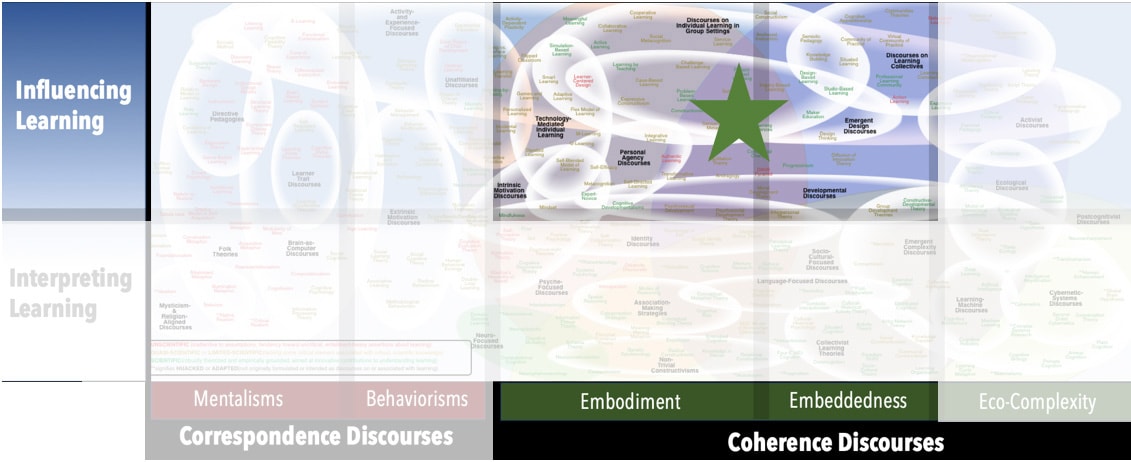Focus
Supporting learning through co-dependent, goal-oriented actionPrincipal Metaphors
- Knowledge is … scope of possible actions and interpretations
- Knowing is … doing
- Learner is … a collaborator (individual) or a project team (collective)
- Learning is … developing understanding through application and exploration
- Teaching is … supervising, facilitating, guiding
Originated
1990sSynopsis
A type of Active Learning or Inquiry-Based Learning, Project-Based Learning aims to support profound understandings of curriculum topics (and more) by involving learners in complex challenges or problems over extended time. The orienting question should be authentic and interdisciplinary. Engaging with it should support creativity, resiliency, and passion on the personal level, as well as communication and other social skills on the interpersonal level. Students are expected to organize and manage their own work. Typically, Project-Based Learning is product oriented, with expectations of written, artistic, and/or technology-based artifacts to relay results.Commentary
Proponents of Project-Based Learning claim that a body of evidence has been amassed to show that learners retain their knowledge longer and are more enthusiastic about learning. Critics counter that such results tend to be based on subjective assessment tools, and data drawn from more standardized tools are less compelling. Concerns have also been voiced over how learners might develop nuanced understandings of higher-level concepts, especially more abstract notions that might not be easily integrated into an interdisciplinary inquiry. Finally, it is not difficult to imagine projects that would overtax classroom resources and teacher knowledge.Authors and/or Prominent Influences
John DeweyStatus as a Theory of Learning
Project-Based Learning is not a theory of learningStatus as a Theory of Teaching
Project-Based Learning is a theory of teaching.Status as a Scientific Theory
Project-Based Learning is founded on scientific theories of learning. Proponents claim a significant body of evidence supporting claims that the approach, implemented with fidelity, is associated with higher achievement, more connected understandings, and improved attitudes. Detractors typically respond that “implemented with fidelity” is a hedge that permits proponents to cherry-pick results.Map Location

Please cite this article as:
Davis, B., & Francis, K. (2020). “Project-Based Learning” in Discourses on Learning in Education. https://learningdiscourses.com.
⇦ Back to Map
⇦ Back to List
